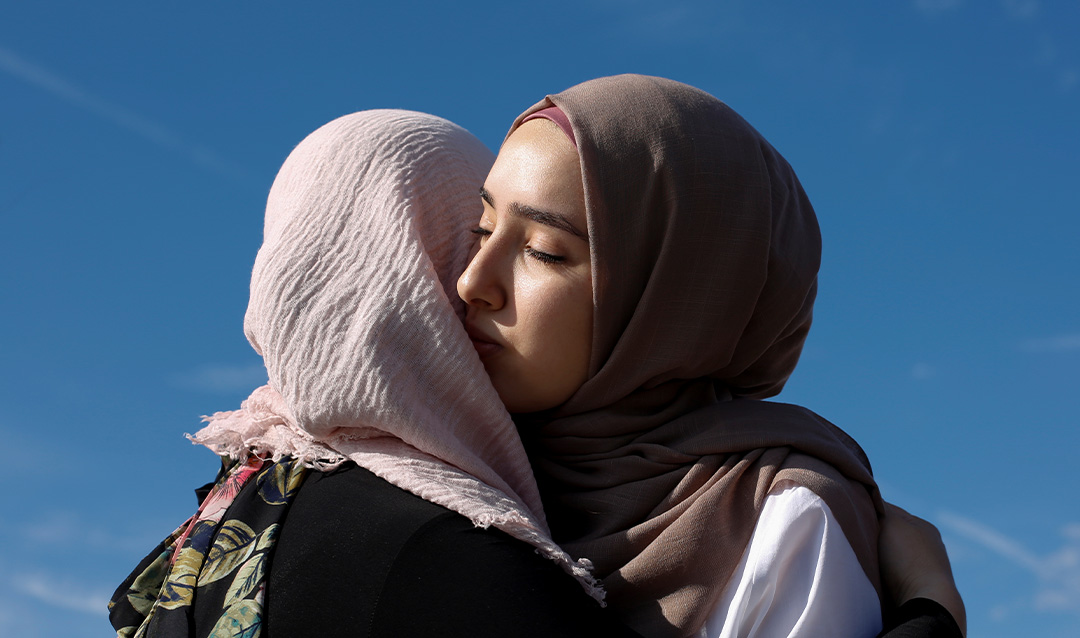According to Gallup, 52% of Americans agree the West does not respect Muslim societies, and studies show negative public opinion of Muslims continues to increase in the United States. Can Islam be compatible with the West? Are we paying attention to the fundamental humanity that people share? These are questions that prompted Khurram Hussain, associate professor of religion studies and director of Lehigh’s Humanities Center, to write The Muslim Speaks, published by Zed Books.
Hussain takes a human-centered approach in his research and finds modern Islam and the West intertwined in more ways than one. With nearly 2 billion Muslims in the world with different experiences and views, Hussain sees Islam as an integral extension of the West and not an isolated identity or concern.
An interdisciplinary background, Hussain's research involves subjects and scholars from areas such as religion studies, international relations, philosophy and sociology.
History has shown that sharing different cultural, ethical and philosophical perspectives is how the modern world started, and the movement of the modern mind comes from a certain kind of curiosity, says Hussain. In this work, he expands on the importance of recognizing the way humans change and evolve, and not reducing society to a stagnant, “perfect culture.”
Identifying the way the West talks about Islam through themes of freedom talk, culture talk, and reason talk, Hussain makes an appeal to “let the Muslim speak,” and listen to different perspectives, with the goal of generating new ideas.
The point isn’t to support or reject Islam, says Hussain, but to build community between Muslims and the West. Hussain stresses the importance of figuring out the parameters of our common existence–something that is easier said than done, he adds.
Through the three themes of freedom, culture and reason, he examines the political similarities and differences between the West and Islam and how they can be compatible, religious judgments, as well as cultural ideals. To reimagine Islam in the West, Hussain concludes the focus needs to be on repoliticizing Islam, rather than depoliticizing.
Depoliticizing means a political relationship is unattainable, and it’s dehumanizing, says Hussain.
It’s important to share perspective and not silo the views of Muslims, urges Hussain. And it’s a challenge that impacts the West and beyond.
While Islamophobia is clearly wrong, he says, that’s not the focus of his research. In fact, taking a complex phenomena like Islam, or complex human beings, and reducing them to cliches isn’t effective either—even when trying to defend Islam, he says.
“Even when we try to become allies of Muslims, we have to be very careful about how we approach them as human beings,” Hussain says.
As a connected society facing global issues, the timing for these conversations could not be more crucial. The 2 billion Muslim voices need to be heard, says Hussain, and recognizing humanity and the repoliticization of Islam is the way to advance the West in a modern society.
“There's no such thing as a single human somewhere,” says Hussain. “We are going to have to come together in some way to figure out ways of talking to each other, engaging with each other, and learning from each other about how we want to live in this shared community and solve problems, together.”
Khurram Hussain is an associate professor of religion studies in Lehigh University’s College of Arts & Sciences and the director of Lehigh’s Humanities Center. Hussain’s research explores the possibility of a robust critical conversation across diverse cultures and traditions. He has extensive training in comparative ethics, historical sociology and modern Western philosophy.





